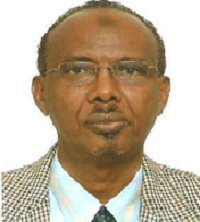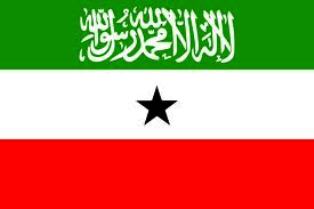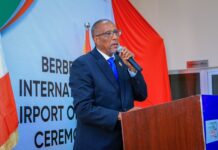“The most insidious kind of power is power-over. This is the power of domination and control, power that seeks to rule unilaterally. Power-over is voracious. Power-over takes what’s there; it makes no distinctions between right and wrong. Power-over must expand or die. Power-over fills all vacuums, crushes the weak, extends itself wherever it can.
The development of power-over initiated the founding of civilization. Our present problems have their roots in the defining characteristics of civilization itself: domination and control. In the last century, two trends—the accelerating sophistication of technology, and increasingly ubiquitous global organization (themselves products of the domination mentality)—have given Power the tools to dominate and control as never before.”

“Political domination can be found, in various degrees, in many of the social relationships of all societies past and present. Properly understood, it is a great evil which ought to be minimized in the best interest of justice.”
These two anonymous quotations on power and domination, which I took from the Internet, reflect the activities that unfold in Somaliland as, in 1884, Egypt planned to leave it and Britain came to seize it. As a spearhead for British imperial expansion in Somaliland, Walsh and his party of riflemen, who saw themselves as an extension of the mighty imperial army, began their maneuvers to take control of Berbera.
“I was very cordially received by the Somafis generally and by the merchants, who were aware that on the evacuation of Berbera by the Egyptians, I was to succeed as the Wali (Governor) of the port and district (i.e. from Dongarita to Lasghoray). All classes, in fact, called on me and volunteered their aid.”
Although Walsh got a friendly reception from those in Berbera, who saw that it was in their interest to welcome one dominant power in place of another, there were others who were influenced by the politics in the wider region and who opposed the British claims. These adversaries were mainly groups influenced by Islamic liberation theology prevalent at the time, such as the “Senousis”, the north African Sufi movement, and the “Mahdists”, the Mahdi movement of Sudan. As Walsh wrote in the paragraph below, even a Mugrubi, a Moroccan Arab, was in Berbera to promote the cause of Islam and oppose the Whiteman’s domination of Africa:
“ The Senousi sent emissaries to Berbera; and we afterwards ascertained from documentary evidence found on the body of a dead Mugrubi (a Western Arab) that a number of these rascals had been specially sent to create riots and disorder at Berbera. Their object was to promulgate hatred against all Christians, to preach the doctrine of “Africa for the Africans” and the total exclusion of the white man.”
On the other hand, there were supporters of the Mahdi movement who engaged in a trade boycott and refused to sell their livestock or their labour to the British. Although the Senoousis and the Mahdists were two Muslim movements that espoused the cause of their fellow Muslims in Somaliland, the author claimed that the two movements had serious differences that led to hostilities and fighting. For Walsh the infighting of the two Muslim groups was a godsend opportunity since they turned their fury to each other rather than to his fledgling administration in Berbera.
While the Muslims were busy killing each other, he was happy to keep the customhouse open and collect sufficient revenue from the trade that was channeled through the port. The proceeds of Berbera’s customhouse were vital to the small British administration since this was the only income they obtained. This local administration did not get financial support from the regional British imperial administration, the Indian Raj, under which it was being steered.
“Now the Somali is at heart a trader; yet many of them, in order to show sympathy with the Mahdi and his cause, agreed not to supply camels or sheep, or to allow the recruitment of drivers and coolies for the British Army then fighting Osman Digna and the Dervishes at Suakin. Owing, however, to their deep-rooted commercial instincts, they were unable to bring themselves in practice to cut off trade relations with us, or to exclude the British from Somaliland. These views and actions brought about many serious fights in Berbera and inland between the Senousi and the Mahdists, at which I greatly rejoiced, since these differences of opinion and policy rendered my position very much easier. I was better able to maintain the balance of power and the consequent peace, which kept our custom-houses open for the collection of duties, upon which receipts we were absolutely dependent in order to pay expenses. The British or Indian Exchequer made no grant whatever to meet our expenditure, simply placing the services of a number of Arabic-speaking Indian Political Officers at the disposal of H.B.M.’s Foreign Office to conduct the Administration in all its branches.”
Berbera’s treasury supported Walsh and his small but growing administration. It is interesting to note that though Walsh’s force was small, it was a multinational. It included Arabs, Baluchis, Pathans, Bukharis, Turks, and Somalis.
“I had not been idle, having enrolled fifty extra local policemen. My recruits were a somewhat mixed lot, including Arabs, Beloochis, Pathans, a Bokharise (a very remarkable man, named Shere AH), and some deserters from the Turkish Army in Yemen, who described themselves as firemen discharged from steamers at various Red Sea ports. The remainder were Somali recruits. The total strength of the regular police was thus brought up to 100 men of all ranks.
“I received no remuneration at all from the British Government, and my salary was derived from the Somali Coast revenue receipts.”
With sufficient revenue rolling out of Berbera’s customhouse and money and weapons in his treasury, Walsh prepared for the complete takeover of the city and its adjacent hinterland.
“Shortly after the Egyptians had evacuated Berbera, in October, 1884, I took it over with the following articles in stores:
300 Remington rifles and bayonets, with pouches,
haversacks, water-bottles, and bandoliers, all in
good condition. 12 Modem revolvers, .455 bore, taking the British Service cartridge. zo old-fashioned revolvers. 50 carbines (really revolvers), each fitted with an iron
shoulder-frame. 4 rifled, single-barrelled C.F. swivels, aimed and fired from the shoulder. 4 three-pounder (man-harnessed) field-guns, with 100 rounds. i complete set of entrenching instruments; also carpenters’ and blacksmiths’ tools. i well-boring apparatus. I small condenser. An immense quantity of ammunition, half of it marked as unserviceable, but useful
for practice. Portable water-tanks, kegs, and skins. Camel, mule, and donkey saddles.
The above firearms were in excellent condition, and were arranged in racks in several rooms of the residency. In this tespect I was, therefore, very well equipped; but my force of riflemen was extremely small, while thirty of them were still inefficient recruits. On the other hand, I had quite sixty really expert shots.
I was in charge of Berbera, Bulhar, Samawanak, Karam, and several other small ports comprising the district known as the Berbera Hookumderieh.”
Becoming fully in charge after the Egyptian evacuation, Walsh organized his small force in order to effectively govern “Berbera Hookumserieh”, or what would later become British Somaliland Protectorate after binding international treaties between the British and the inhabitants of the land were signed.
“I had divided my policemen into six detachments. These detachments were apportioned as follows
Residency and Reserve 35
Orderlies 5
Town 20
Custom House 8
Bulhar 25
Dubar 7
This rudimentary Protectorate administration organized its limited human resources and embarked on running the country. Since its resources were seriously lacking, it invented some original and ingenious ways to maintain law and order among its overwhelmingly nomadic population. In the next article, we will look into some of the challenges the small administration met and how it dealt with them.
























